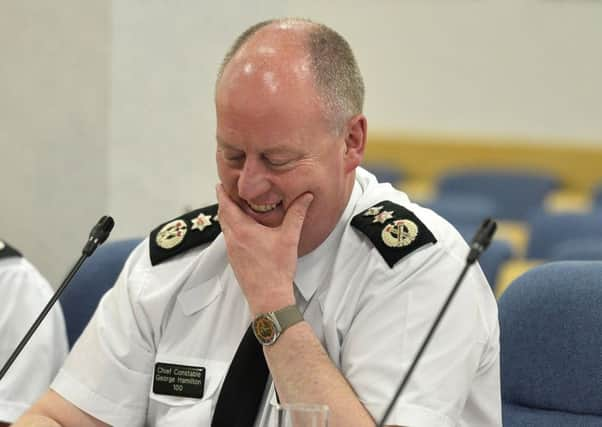Sir George Hamilton: ‘Mature debate’ on Troubles amnesty required


Sir George Hamilton stressed he was not advocating an amnesty and did not personally believe in one.
But he highlighted other peace process concessions he was uncomfortable with, such as the early release of paramilitary prisoners, as examples of controversial steps politicians agreed to as a “price worth paying” for moving society forward.
Advertisement
Hide AdAdvertisement
Hide AdSir George said any political debate on “drawing a line” on past killings must be considered in the context of the relatively low chances of securing historic convictions.
He said that convictions were unlikely because forensic opportunities were “buried” due to another peace process political decision – the decommissioning of weapons.
The outgoing police chief also noted that anyone who was found guilty would only have to serve two years in jail – again due to a political decision made during the peace process.
“I don’t personally believe in an amnesty, I don’t think it will help, I don’t think it will bring closure,” he said.
Advertisement
Hide AdAdvertisement
Hide Ad“But I am happy to take my personal position, and the organisation’s position in not advocating for it, set it there (to the side), and look at the reality of how many of these cases are going to be brought to a criminal justice outcome.”
Sir George was challenged on the issue by DUP MLA Mervyn Storey at his final appearance before the Policing Board. Mr Storey referred to recent remarks by the chief constable when he said he could “live with” an amnesty. The politician claimed Sir George had caused hurt to victims.
The senior officer told Mr Storey: “I am not advocating for an amnesty and you have accused me of that and I want to put the record straight on that.”
He added: “All I am saying is I think we should be progressive enough, I think that political leadership should be courageous enough to publicly have that discourse and have that debate.”
Advertisement
Hide AdAdvertisement
Hide AdAddressing board members, Sir George again urged politicians to move to implement the stalled legacy mechanism agreed as part of the 2014 Stormont House Agreement.
“Five years ago laying out my stall in how I foresaw the next five years I said if we - everybody in positions of responsibility - did not get this matter resolved it was going to be detrimental to policing and it could even be detrimental to the peace process,” he said.
“I am not apportioning blame to either local groups or the British Government or anybody else, I am saying that, in a general sense, those who have the responsibility politically to make this happen - I am speaking at the end of my tenure as I did at the start - to please do so because it is in everybody’s interests, not least of all the people who need answers, closure and justice for the loss of their loved one.”
Sir George was also asked questions on the PSNI’s ongoing difficulty in attracting new Catholic recruits.
Advertisement
Hide AdAdvertisement
Hide AdHe said there was a need for political and community leaders in nationalist areas to proactively “advocate” that policing was a “noble profession” and career choice worth pursuing.
The chief constable said the revival of the controversial 50:50 recruitment policy should remain “on the table” for consideration - but he made clear it would be a political choice.
Policing Board chairwoman Anne Connolly paid tribute to the outgoing police chief.
“His tenure has focused on improving the service to the community through embedding the ethos of policing with the community and to keeping people safe,” she said.
Advertisement
Hide AdAdvertisement
Hide Ad“He was a strong believer in the need for stronger partnership between policing and the public sector, and using resources much more effectively to deal with vulnerability in our community.
“As chief constable, he has been a strong advocate for the civic oversight of policing and its importance in confidence building in the service.”